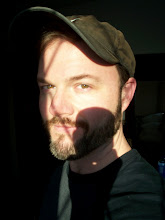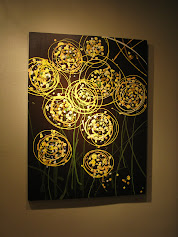
Shortly after I launched the blog back in January, I got an email from my friend Pat Mueller saying I really needed to speak with her friend, The Honey Lady. While this blog is neither about honey, or bees, I still thought it would be fun to have Petra Bee Our Guest. Now 4 months later, it would seem that this was another perfect piece of timing...
When I spoke with Petra on the phone the other night, I found her to be perfectly delightful with a wonderfully wry sense of humor. Talking about the various farmer's markets in the area made me ripe with anticipation for the buttery Summer days just around the corner. The days when I'll wander around the farmer's market waiting for some gorgeous, straight off the truck hunk of produce to shout out "Michael, take me home for supper"! I can add a honey tasting with my new Honey Lady to my short list of must-do Summer adventures!
MPM: Let's start with the tasty part! How is the honey that you produce different from most store bought honey?
PA: What you generally find in the store is bottled and distributed by a packer. The packer buys the lightest honey from as many sources as possible and blends them all together. Generally the lighter honeys are not only the sweetest, but also, to my taste, the most bland. Mixing it all together ensures a certain uniformity. Right before bottling, the honey is heated briefly to 170 deg F to pasteurize it. Pasteurization will extend shelf life by keeping the honey from granulating as quickly. Unfortunately, the beneficial pollen is also destroyed in the process.
We have chosen to keep the different varietal separate and sell them based on their floral source - to embrace the differences. Right now we offer a really light clover thistle, black locust, black raspberry and buckwheat. When you sample these honeys side by side, you can really taste the differences. The clover thistle is very sweet. The black locust has an herbal undertone that makes it wonderful for teas, the black raspberry (my favorite!) is a bolder honey with a hint of fruit and then there is buckwheat, which I put in a category all it own. It tastes more like molasses than honey.
MPM: As the "mouthpiece" for the Wisconsin Honey Cooperative, what's the word you want to get out?
PA: Honey is yummy! Buy local. Buy as direct as possible. Know where your food comes from and how it is handled.
MPM: What's your take on CCD, and what do you believe can be done to reverse it's effects?
PA: Fact: They have found a virus that could be causing the collapse. Fact: they discovered that mites were the means for spreading the virus. So there is something out there that is causing hive to collapse. But I think there is more to it than that. I see the bees like our canaries in the coal mine. The bees are at the front line of our farming practices. We spread chemicals to keep weeds in check (which bees bring back to the hive). We genetically modify our crops to keep them pest free (why do they fly over hybridized buckwheat fields but "feast" on the non-hybridized buckwheat?). We load them up on trucks and haul them cross country to pollinate our almond groves, allowing them to "feast" on a mono-floral food source (imagine if you ate only broccoli for 3 weeks straight!). A lot of commercial beekeepers also take ALL the honey and then feed them high fructose corn syrup (probably one of the most genetically modified crops out there).
We have chosen to over-winter our bees here in Wisconsin. We have also chosen to keep some honey in reserve to get them through the winter. This is not the easiest nor the most cost effective way of doing things, but I believe it is best for the bees.
MPM: So what's the scoop on genetically engineered bees?
PA: Most of the honey bees out there have been hybridized. They figured out that larger bees make more honey. They have also bred them to be more docile. Unfortunately, larger bees also have a longer time in the larval stage which makes them much more susceptible to mites. Although mites have been around a long time, they have gotten worse as the bees have gotten bigger. There is a movement to regress bees back down to a smaller size to make them more mite resistant.
MPM: If I come down to the farmers market this summer, will Petra give Michael an educational honey tasting?
PA: Everyone that stops at our stall this Summer will have the opportunity to taste every variety we have- available side by side. Mention this blog, and I'll give you a deal on your next honey purchase!
MPM: Our readers thank you in advance Petra!
For more information on Petra's LUSCIOUS HONEY products, or the Wisconsin Honey Cooperative, you can use the this link: www.luscioushoney.com
When I spoke with Petra on the phone the other night, I found her to be perfectly delightful with a wonderfully wry sense of humor. Talking about the various farmer's markets in the area made me ripe with anticipation for the buttery Summer days just around the corner. The days when I'll wander around the farmer's market waiting for some gorgeous, straight off the truck hunk of produce to shout out "Michael, take me home for supper"! I can add a honey tasting with my new Honey Lady to my short list of must-do Summer adventures!
MPM: Let's start with the tasty part! How is the honey that you produce different from most store bought honey?
PA: What you generally find in the store is bottled and distributed by a packer. The packer buys the lightest honey from as many sources as possible and blends them all together. Generally the lighter honeys are not only the sweetest, but also, to my taste, the most bland. Mixing it all together ensures a certain uniformity. Right before bottling, the honey is heated briefly to 170 deg F to pasteurize it. Pasteurization will extend shelf life by keeping the honey from granulating as quickly. Unfortunately, the beneficial pollen is also destroyed in the process.
We have chosen to keep the different varietal separate and sell them based on their floral source - to embrace the differences. Right now we offer a really light clover thistle, black locust, black raspberry and buckwheat. When you sample these honeys side by side, you can really taste the differences. The clover thistle is very sweet. The black locust has an herbal undertone that makes it wonderful for teas, the black raspberry (my favorite!) is a bolder honey with a hint of fruit and then there is buckwheat, which I put in a category all it own. It tastes more like molasses than honey.
MPM: As the "mouthpiece" for the Wisconsin Honey Cooperative, what's the word you want to get out?
PA: Honey is yummy! Buy local. Buy as direct as possible. Know where your food comes from and how it is handled.
MPM: What's your take on CCD, and what do you believe can be done to reverse it's effects?
PA: Fact: They have found a virus that could be causing the collapse. Fact: they discovered that mites were the means for spreading the virus. So there is something out there that is causing hive to collapse. But I think there is more to it than that. I see the bees like our canaries in the coal mine. The bees are at the front line of our farming practices. We spread chemicals to keep weeds in check (which bees bring back to the hive). We genetically modify our crops to keep them pest free (why do they fly over hybridized buckwheat fields but "feast" on the non-hybridized buckwheat?). We load them up on trucks and haul them cross country to pollinate our almond groves, allowing them to "feast" on a mono-floral food source (imagine if you ate only broccoli for 3 weeks straight!). A lot of commercial beekeepers also take ALL the honey and then feed them high fructose corn syrup (probably one of the most genetically modified crops out there).
We have chosen to over-winter our bees here in Wisconsin. We have also chosen to keep some honey in reserve to get them through the winter. This is not the easiest nor the most cost effective way of doing things, but I believe it is best for the bees.
MPM: So what's the scoop on genetically engineered bees?
PA: Most of the honey bees out there have been hybridized. They figured out that larger bees make more honey. They have also bred them to be more docile. Unfortunately, larger bees also have a longer time in the larval stage which makes them much more susceptible to mites. Although mites have been around a long time, they have gotten worse as the bees have gotten bigger. There is a movement to regress bees back down to a smaller size to make them more mite resistant.
MPM: If I come down to the farmers market this summer, will Petra give Michael an educational honey tasting?
PA: Everyone that stops at our stall this Summer will have the opportunity to taste every variety we have- available side by side. Mention this blog, and I'll give you a deal on your next honey purchase!
MPM: Our readers thank you in advance Petra!
For more information on Petra's LUSCIOUS HONEY products, or the Wisconsin Honey Cooperative, you can use the this link: www.luscioushoney.com

















No comments:
Post a Comment